Turquoise waters nibble sweetly at white-sand beaches generously sprinkled among many islets and cays – it’s little wonder the archipelago draws sailing enthusiasts from around the world. Heck, if you’re an American citizen you don’t even need a passport to get here. For those who prefer to bed down on land rather than water, the islands of St Thomas, St Croix and St John are the most popular bases for indulging in sun, sea and sand.
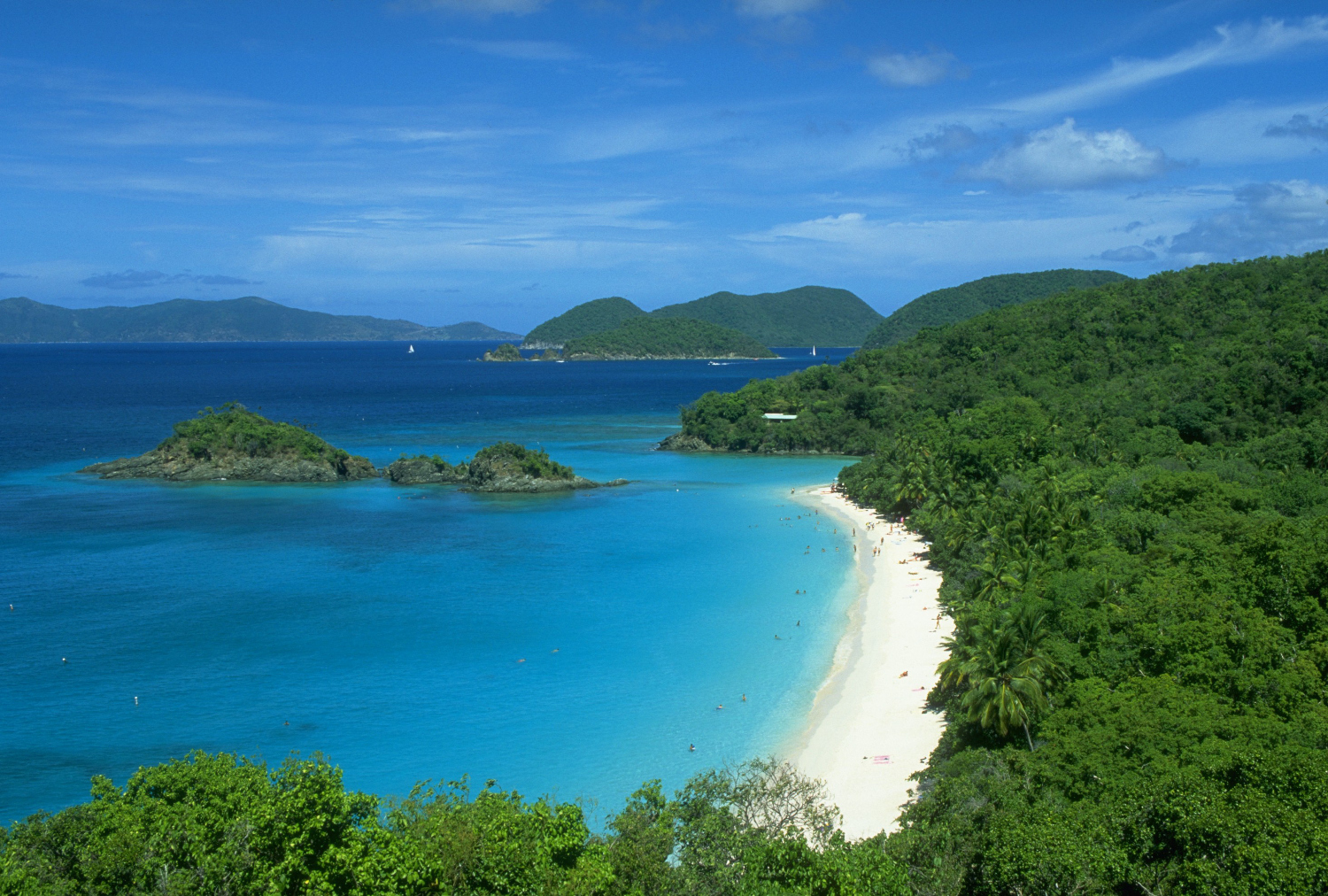
St Thomas is the bustling heart of the US Virgin Islands, where forest-clad mountains jostle for space with impressive all-inclusive resorts that lead to vibrant harbors and stroll-worthy beachfronts, cosmopolitan fine-dining and glitzy shopping. Welcome to the bazaar.
Charlotte Amalie, the capital and largest city of the US Virgin Islands, is one of the busiest and most beautiful ports in the Caribbean. But head downtown and you will get a glimpse of the island’s colonial past as a Danish colony.
Proud heritage monuments such as the fiery red Fort Christian and golden Frederick Lutheran Church offer pops of color along the waterfront and down cobblestone streets. Continue the historical trail by climbing Charlotte Amalie’s ‘step streets’, which cut through almost all of the hills ascending from the harbor area.
Outside of town, the exhilarating zip-line tour over the rainforest offered by Tree Limin’ Extreme (ziplinestthomas.com) can be combined with a tour of the historic St Peter Great House & Botanical Gardens (greathousevi.com), the highlight of which is a nature trail resplendent with waterfalls, tropical birds and more than 150 species of Caribbean plants and fruits.
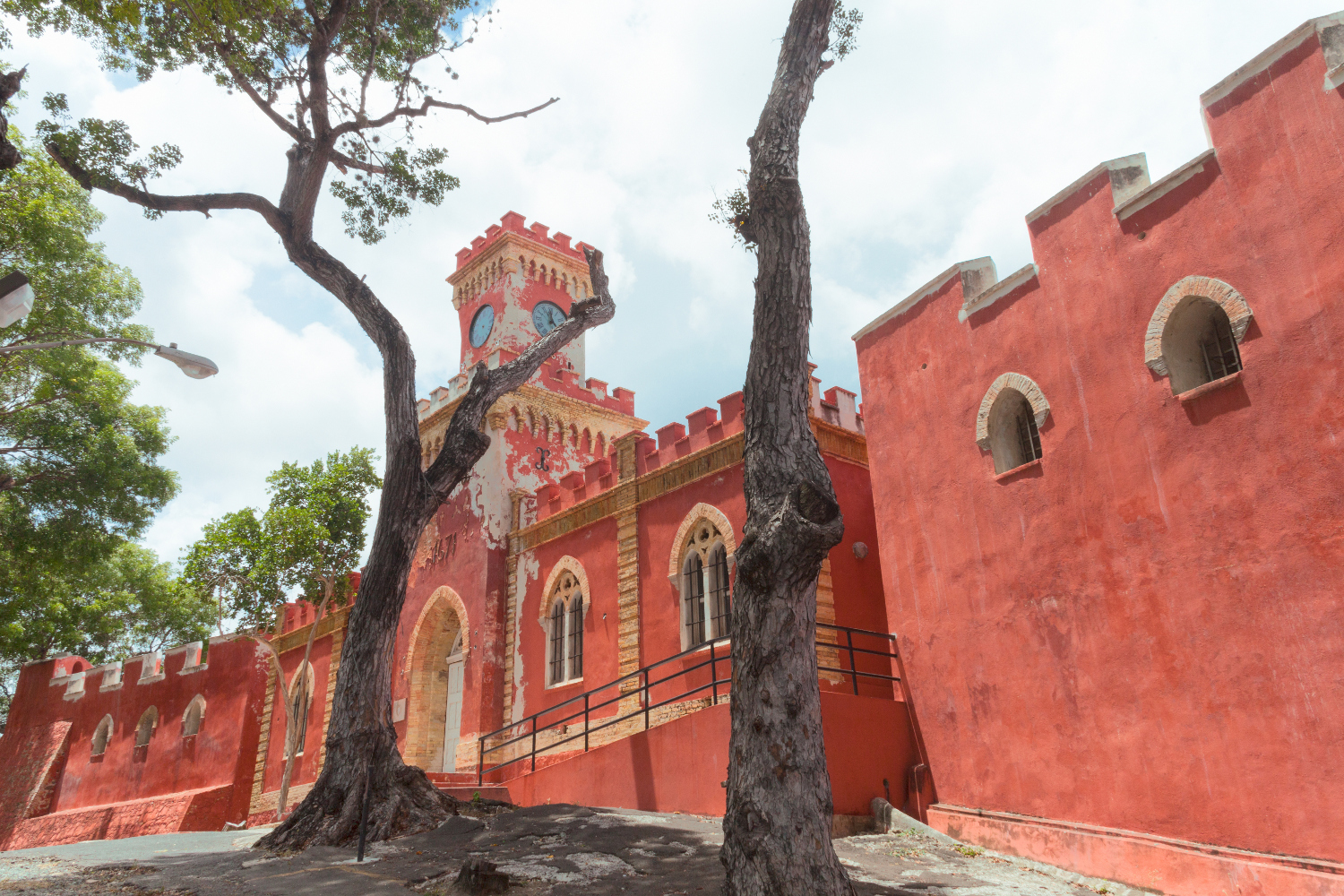
Hanging out – or “limin’”, as the locals call it – is a lively affair on St Thomas, filled with music, dance and general irreverence.
Shimmy to the rhythm of a steel pan or Calypso musical performance at Coconut Cove (ritzcarlton.com) or catch a show at Iggie’s Bolongo Bay, where the colorful costumes, characters and pulsating music offer a snapshot of the razzle-dazzle of St Thomas’s annual Carnival celebrations.
Magens Bay is the most popular of the island’s 40 beaches, and it's just a hop, skip and a jump from Charlotte Amalie. This mile-long stretch is often crowded, but what’s not to love about a heart-shaped beach? Avoid the crowds by waiting until mid-afternoon to go for a swim.
Coki Beach near Redhook has crystal-clear waters beloved by thousands of multicolored fish. Dip beneath the waves on a scuba-diving tour or float on top with a snorkel and fins for a closer look at the Caribbean ocean’s bounty; gear rentals can be arranged right on the beach.
For a local dining experience, head to Gladys’ Café in downtown Charlotte Amalie for tender jerk pork, stewed chicken with rice peas and fried yellowtail snapper. Douse your dinner in Gladys’ homemade hot sauce and then, if your taste buds can take it, pick up a bottle to take home as a souvenir.
The historic Hotel 1829 (blackbeardscastle.com) in downtown Charlotte Amalie is the expansive former mansion of a French merchant. It has bags of antique charm and cozy rooms that open to beautiful gardens full of tropical plants. It's also home to a two-story waterfall fountain cast from 12,000 amber stones.
The Cyril E King International Airport is in Charlotte Amalie, and is the islands' biggest international airport (though international flights also run to St Croix).
Nature haven, walkers’ wonderland, scuba-diving sweet stuff… If St Thomas is the wired big brother, St John is the archipelago’s chilled-out little sister. With two-thirds of the island protected as a national park, this is the island that outdoor enthusiasts make a beeline for. Relax, unwind, maybe explore. Repeat.
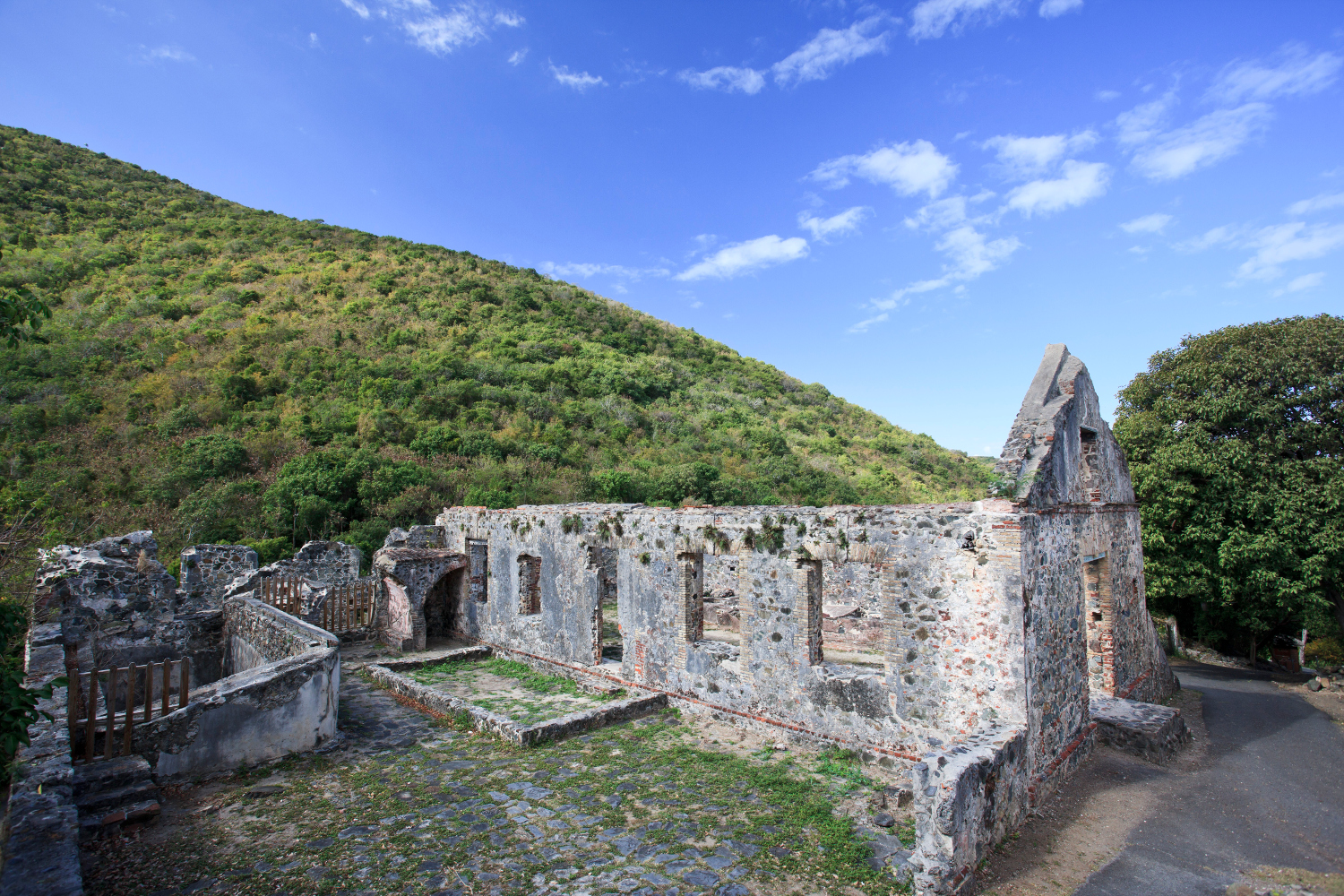
The great outdoors and the Virgin Islands National Park take center stage on St John, both above and below the water. Trunk Bay Beach is a lovely scenic arch of sand (so popular it charges an entrance fee), home to a 225-yard underwater snorkel trail.
There’s also excellent snorkeling at Salt Pond Bay Beach (seestjohn.com) and trails to explore on land. Ram’s Head Trail ends on a 200ft-high cliff overlooking the Caribbean Sea and a sea-level trail takes you to the rocky shores of Drunk Bay.
Salomon Beach can be reached from the Lind Point Trail, which starts behind the National Park Visitors Center in Cruz Bay. Its winding path brings you to a palm-tree-lined beach so secluded that some think clothing is optional.
Head to Coral Bay in the east of the island for callaloo (stew made of spinach and okra) or fried fish at Miss Lucy’s beachfront restaurant. On Sundays, diners settle in early for Lucy’s famed jazz brunch.
Befitting St John’s reputation for natural living, Concordia Eco-Tents in the island’s East End area, offers imaginative wood-framed eco-tents strung together by boardwalks up a steep hillside. Killer views and yoga classes complete the picture.
St John has no international airport or cruise port. To get there, it’s a short four-mile ferry ride (departing every hour) from the St Thomas docks at Charlotte Amalie and Red Hook. Passengers disembark at Cruz Bay, a pastel-hued ferry port close to a clutch of stores, restaurants, car-rental firms, dive shops and bars.
Seven different national flags have, at one time or another, flown over St Croix. Amid the cultural melee, Spanish, French and Danish influences have all played a part in making St Croix the culture capital it is today. The “big island”, as it is often simply called, may be the largest of the US Virgin Islands but still has small-town charm.
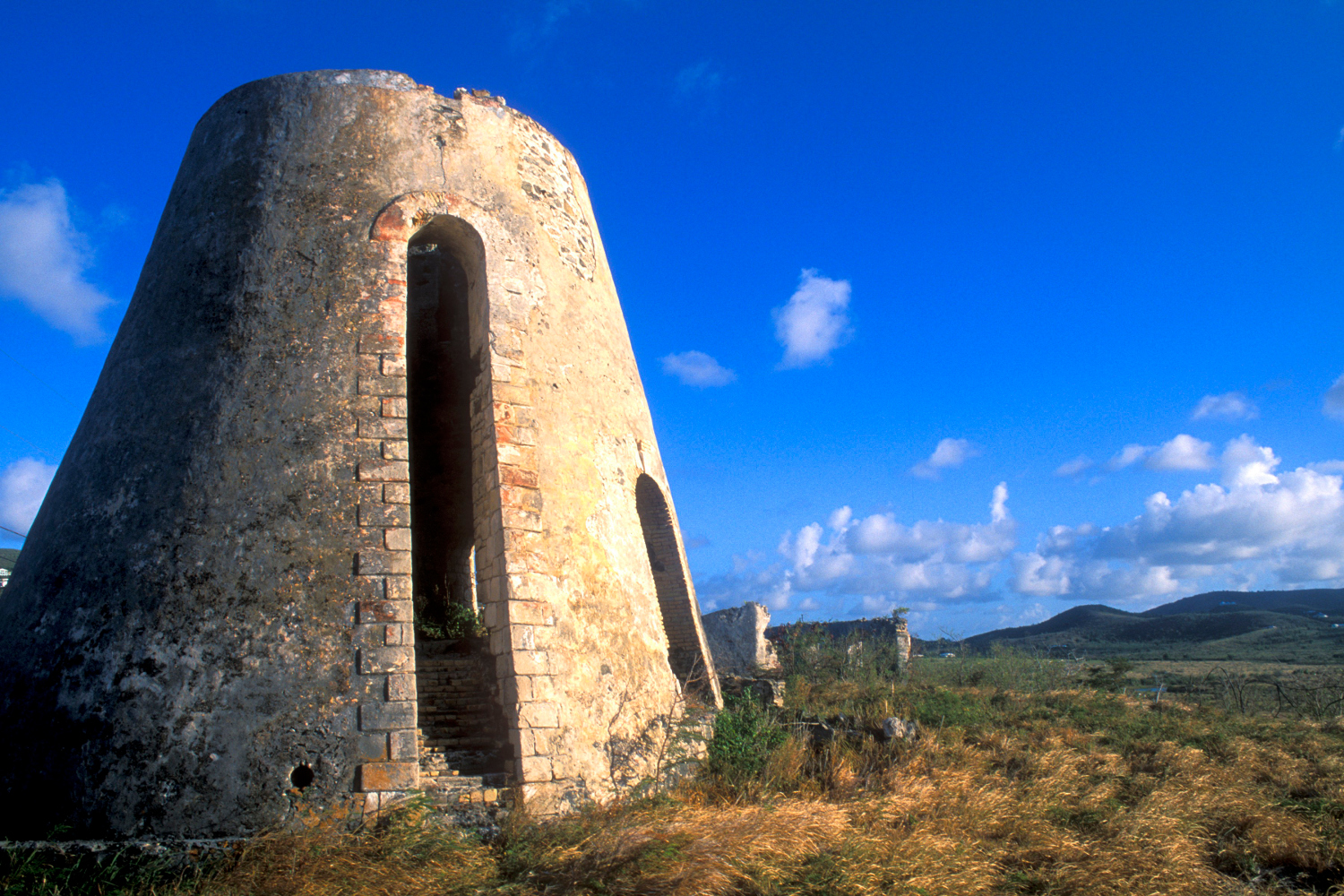
Two hundred sites of historical interest criss-cross the island and together they make up the St Croix Heritage Trail – a self-guided driving tour through the historic sites and natural areas of the island (pick up a heritage trail map, stcroixlandmarks.com, to plan your route).
Highlights include the dungeons, cannons and custard-colored citadel of the Christiansted National Historic Site; the Estate Whim Plantation Museum; and Fredericksted, aka Freedom City – the site where slaves were emancipated under the former Danish West Indies.
Take a tour of the rum distillery where locals' favorite elixir Cruzan Rum has been produced for more than 300 years and see firsthand how it is made.
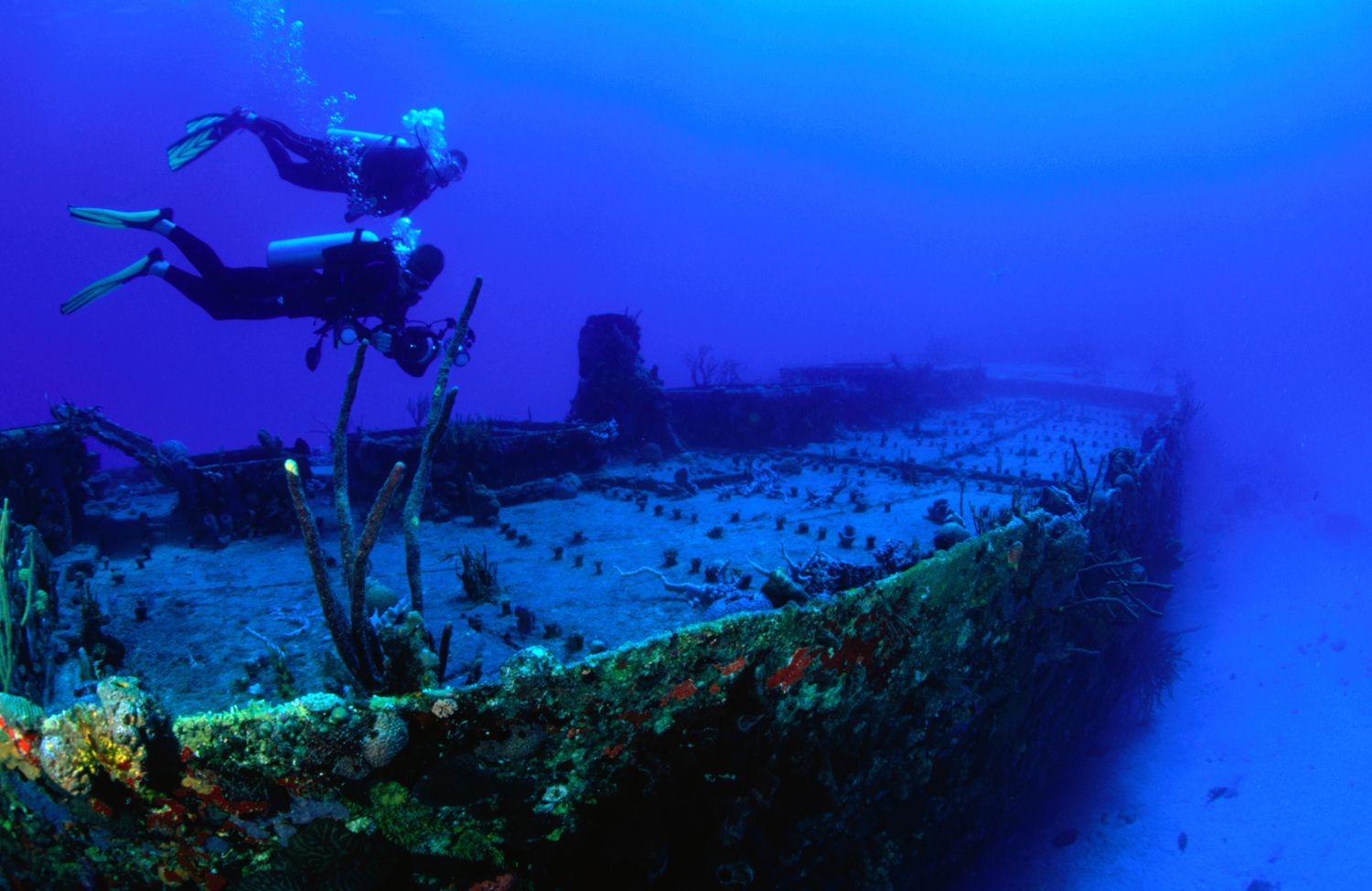
Beneath the sea, Buck Island supports an 18,000 acre coral reef teeming with fish and sea turtles, a sea garden and an underwater snorkeling trail; above water, it’s thronged with wildlife including brown pelicans. You can visit on a day tour from Christiansted.
Cane Bay is a popular day-tripping beach for families but it’s also rated one of the top dive sites in the Caribbean. Scuba junkies flock here to dive a spectacular wall, which slopes from 40ft to more than 3,200ft under the sea.
Singh’s Fast Food serves up rotis stuffed with chicken, beef and shrimp as well as popular street foods such as doubles (sandwiches filled with chickpeas and spices). For a treat on a hot day, try a scoop of guava or gooseberry ice cream made with fresh local fruit at Armstrong’s ice-cream parlor in Frederiksted, where one family have been churning up the sweet stuff for more than 100 years.
Carringtons Inn (carringtonsinn.com) is a lovely former private home in Christiansted. Sitting atop a hillside, this adults-only gem has five spacious poolside rooms with expansive views of the Caribbean Sea and historic harbor city. Homemade breakfast is dished up daily and the inn is well-located for horseback riding, snorkeling, diving and golf nearby.
You can fly directly into St Croix's Henry E Rohlsen Airport (6 miles southwest of Christiansted) from the US or, if you decide to island-hop, take a seaplane that departs from the dock in downtown Charlotte Amalie on St Thomas, which arrive on St Croix in as little as 20 minutes. There is no ferry service between St Thomas and St Croix.